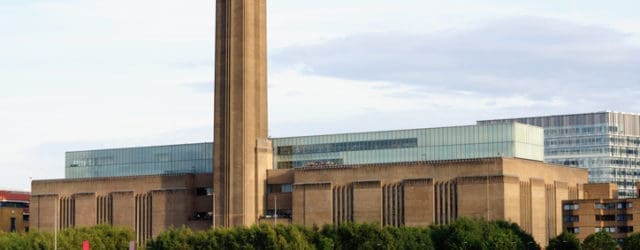Tate Modern viewing platform found to invade apartment owners’ privacy
February 2023On Wednesday 1st February 2023, the Supreme Court handed down judgment in a long running dispute between the owners of four luxury apartments on London’s Bankside and the Tate Modern. The Supreme Court held that the Tate Modern’s Blavatnik extension to the gallery led to the owners of the apartments facing a “constant visual intrusion” that interferes with the “ordinary use and enjoyment” of their properties.
History of the case
The dispute between the Tate Modern and the apartment owners originated after the development of the £260m Blavatnik extension of the world-famous gallery, which opened in 2016. The 10th floor viewing gallery was part of that development, which provides a panoramic view of London and a direct view into the luxury apartments. The viewing gallery is visited by an estimated 500,000 visitors per year.
This case has not been a straightforward one and began in 2017, when the owners of the apartments applied for an injunction requiring the gallery to cordon off parts of the gallery or erect screening to protect their privacy.
In the first instance decision, Justice Mann of the High Court found for the Tate, and opined that the glass-walled design of the apartments and their location in central London came “at a price in terms of privacy”, while the Court of Appeal upheld that decision and ruled that overlooking could never be considered a private nuisance.
Judgment of the Supreme Court
The apartment owners then further appealed the Court of Appeal’s decision, taking their dispute to the Supreme Court. The long-running battle has, after 6 years, finally been settled as the Supreme Court ruled in the apartment owners’ favour and overturned the Court of Appeal’s decision in a 3-2 majority judgment, showing again how this case has split opinion throughout its history.
The Supreme Court held that overlooking can be considered a nuisance and an invasion of privacy – the fact that the Tate Modern is a sensitive building was not a defence to the visual intrusion that the viewing gallery was causing. In his judgment, Lord Leggatt commented on how “oppressive” it must have been for the apartment owners living in such circumstances and likened them to “being on display in a zoo”.
Comment
It was thought that the Supreme Court’s decision, finding in favour of the apartment owners, had the potential to open the floodgates for property owners making similar claims of loss of privacy or overlooking.
While the case does establish that overlooking can be considered a nuisance and an invasion of privacy where this is due to an unusual land use (and this may conceivably be expanded where there is an unusual land use giving rise to other types of nuisance), it is unlikely to lead to widespread claims succeeding.
Lord Leggatt was clear in his judgment that this case involved a very particular set of facts and an unusual use of land by the Tate Modern and its viewing gallery. It is likely that the principles that this precedent established will not apply to most neighbour disputes over “ordinary” residential or commercial developments.
Nevertheless, this case is a landmark decision regarding the right to privacy, and an example of how a construction project can impact on an individual’s human rights. Lord Leggatt dismissed the assertion that it was the apartment owners’ responsibilities to put up curtains to stop the visual intrusion, and therefore the idea of “reasonable reciprocity and compromise” in this scenario. In his view, the Tate Modern was solely to blame for the intrusion, which marked a “straightforward case of nuisance”.
The decision in this case is an example of where Environmental, Social and Governance issues from construction or building use may have an impact, in this case on human rights, under the social pillar.
It should be noted that the judgment does not contain a remedy or obvious “outcome” and the case has been passed back to the High Court for a decision on this. We will await this decision as to what the remedy will be or whether there can be an agreeable compromise. In the meantime, the lead lawyer advising the owners of the apartments has advised that they will be working with the Tate to “find a practical solution which protects all of their interests”.
Download PDF








